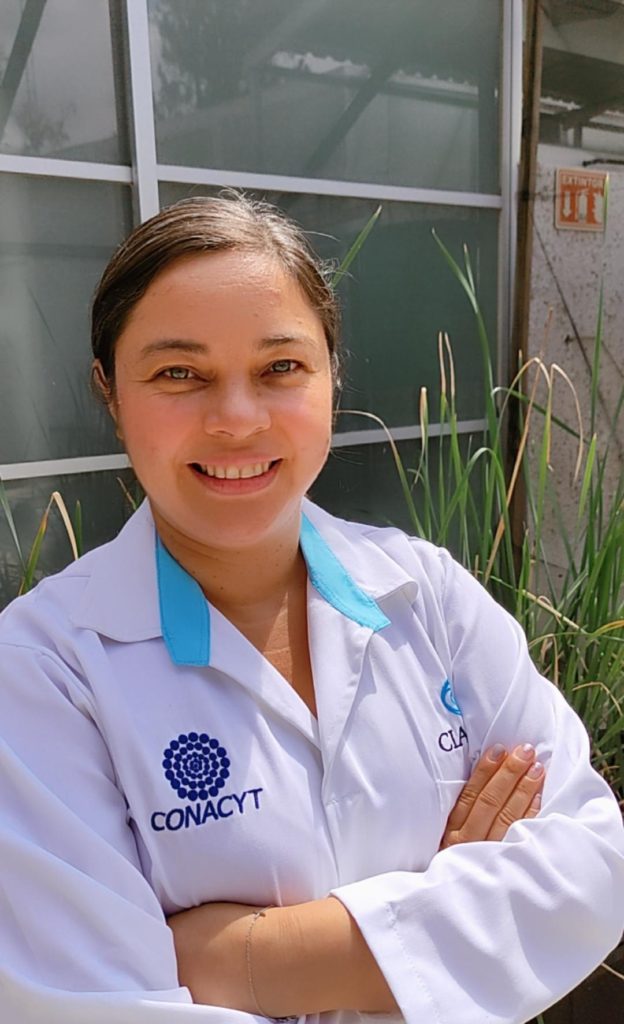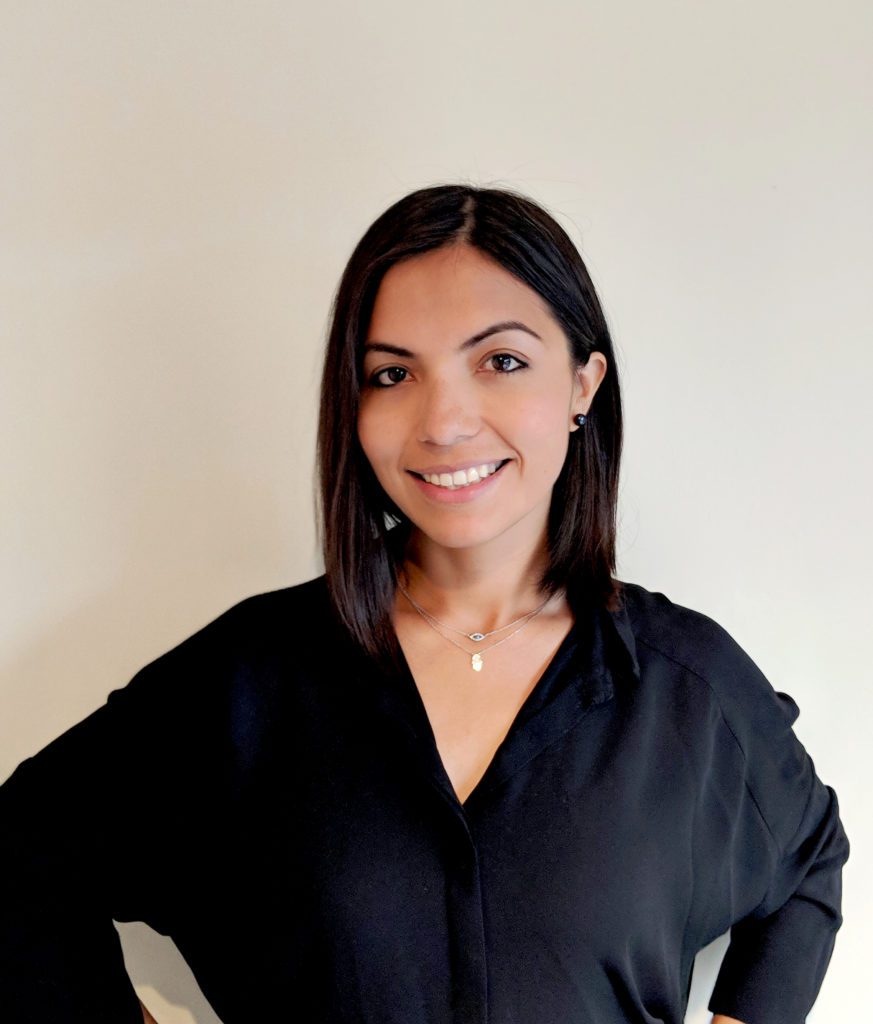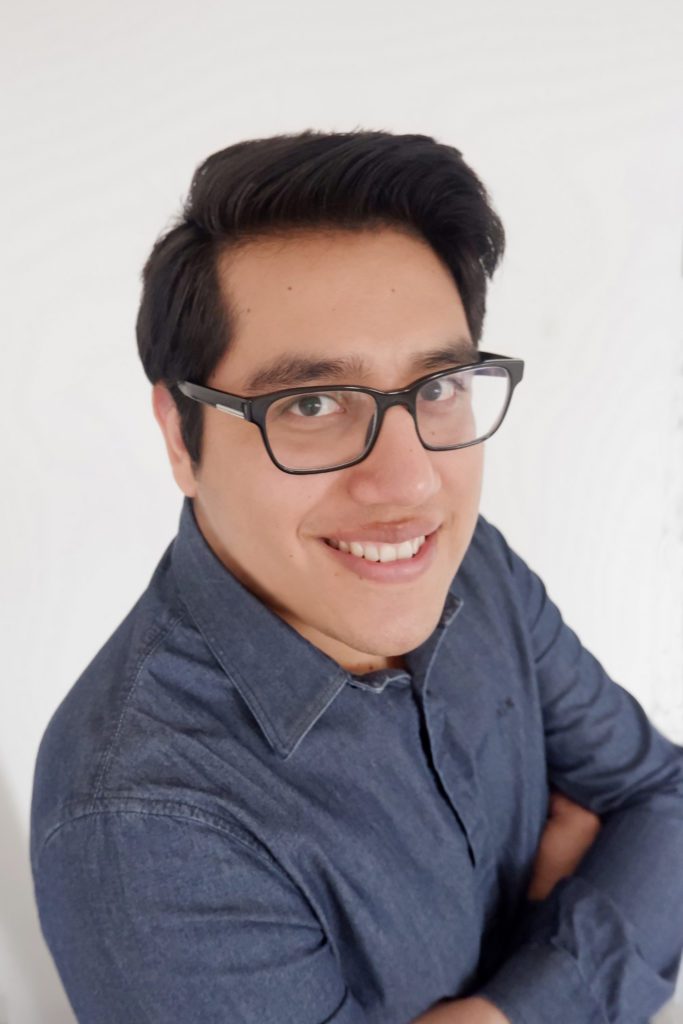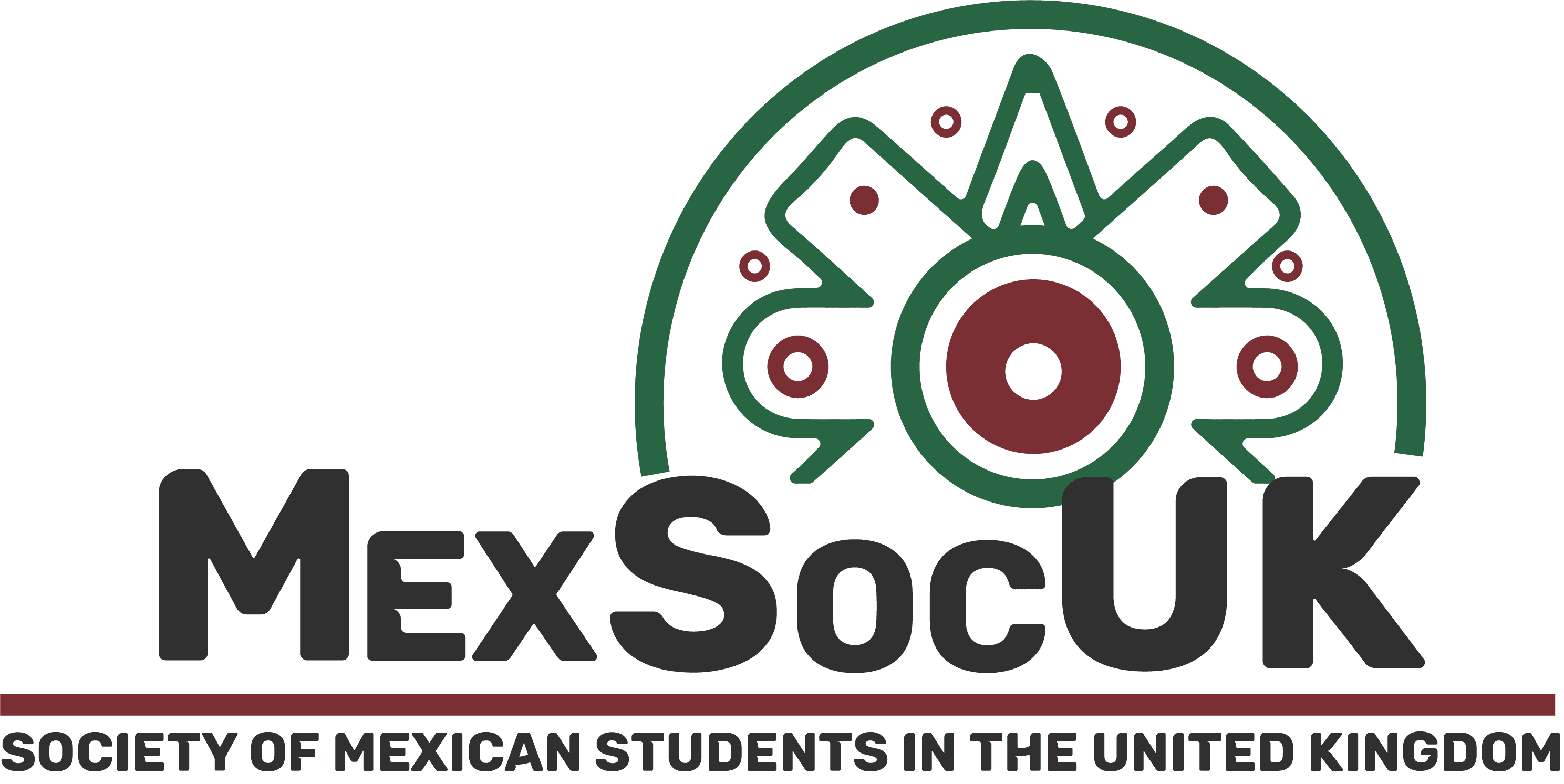
Azucena Garcia Gutierrez
Winner for Arts and Humanities
Applied Linguistics and Communication
Chevening Scholar (2019-2020)
Birkbeck, University of London.
Being a single mother at an early age while she was a student, Azucena Garcia Gutierrez actively demonstrated her determination, persistence and passion for becoming an outstanding professional from the beginning of her educational pathway. Originally from Toluca, State of Mexico, Azucena has been passionately paving her academic trajectory towards the teaching field, in conjunction with the world of languages, for the last ten years. Most importantly, she has shown a significant interest in contributing positively to improving education in her community through her leadership, innovation and commitment.
Graduated from the Autonomous University of the State of Mexico (UAEMex), she thoroughly participated in a joint project to design a language syllabus tailored to particularly fulfil the education needs of an elementary school in her hometown. The project “Design, Development and Creation of the Workbook, Teacher’s Guide and Study Program based on The Competency Method, for Elementary School Children” symbolized a remarkable cornerstone to improve foreign language education in a particular context.
Not only has she been a substantial educator in Mexico, but she also became a distinguished representative of Mexico in globally acknowledged British schools through the sponsorship of the British Council. One of her most noteworthy contributions that illustrated her innovation and leadership abilities was her role as a material designer at the Education Office-Spanish Embassy in the United Kingdom and the Republic of Ireland. Her voluntarily participation in the joint series “Like Water for Chocolate. A guide for A-levels” signalled her fervent desire to foster Mexican literature at British academic institutions. Therefore, her experience abroad strengthened her sensitivity to culture by being immersed in an international environment. Unequivocally, it influenced her understanding in regards to the Mexican education system, its particular characteristics and conditions.
Furthermore, Azucena was granted the Chevening Scholarship (2019-2020) to undertake a master’s degree in the United Kingdom. She undeniably denoted to be a worthy future leader in her professional field to improve the connections and development between Mexico and the United Kingdom. Hence, she has recently culminated her MA. in Applied Linguistics and Communication at Birkbeck, University of London. Her passion for languages and specific areas of expertise such as Critical Discourse Analysis has been the key to excel admirably in academia and research. Due to the high quality of research that she conducted, she was awarded a Michel Blanc Prize for the best-written dissertation at Birkbeck, her alma mater. Through her dissertation “The Construction of National Identity through the issue of immigration by Andres Manuel Lopez Obrador (AMLO). A Discourse-Historical Approach”, she addresses a heated topic such as immigration in a succinctly linguistic analysis of political speeches by the current president AMLO. Her research has provided a better insight into how representations of national identity are created, reproduced and changed by political figures in the attempt to fulfil political purposes. It seems clear that her analysis has shed light on a better understanding of the Mexican socio-political context. Additionally, it is discussed to what extent immigration has heretofore become a hot topic against minorities from the perspective of two nations such as Mexico and The United States. Undoubtedly, her former project has been one of the most significant attainments that have motivated her to pursue her academic and professional growth.
Oriana Landa Cansigno
Winner for Science, Technology, Mathematics and Engineering
Environmental Engineering PhD
University College London
Conacyt Scholarship
Dr Oriana Landa graduated with a PhD in civil and environmental engineering from University College London in 2020. She studied for a bachelor degree in environmental engineering at the University of Veracruz and a Master’s degree in the same discipline from the National Autonomous University of Mexico. Her PhD thesis analysed some water management scenarios from a comprehensive perspective of water, energy, climate change and pollution nexus. Results provided information to water utilities to save drinking water, promote decentralisation and increase the efficiency of the urban water sector in a real case study in Guanajuato, Mexico. Due to her outstanding contribution to creating effective management policies and addressing local problems with global perspectives, her research work obtained the Sustainable Research Award given by University College London in 2020.
During her studies in the UK, she was a teaching assistant in the life cycle analysis and project engineering courses at the undergraduate and masters’ levels. She was a promoter of the Science, Technology, Engineering and Mathematics program for teenagers at UCL, where she worked in logistics of events such as women in engineering day and the London leaders award. She was a co-founder of the water research student group at University College London, a group aimed at networking and promote interdisciplinary research in water topics. She also volunteered as an organiser of meetings at the “London Language exchange group”, where she promoted the Spanish language and culture of her country among English and Spanish native speakers in London. In addition, she has helped some of her Mexican peers who contacted her directly through social networks in extenuating circumstances.
After her graduation, Dr Oriana returned to Mexico and joined CIATEC, a research centre in Guanajuato. In 2020, she led a project in one of the most polluted basins in the country, defining a solutions’ portfolio in relation to sanitation and restoration of the river, territory and risks. This project allowed her to work with the rural stakeholders affected by the Turbio River pollution, with municipalities, state government and with her fellow researchers to propose solutions from the technical, political and environmental points of view.


Cecilia Landa-Avila
Winner for Chemical, Biological, and Medical Sciences
PhD in Healthcare Systems Design
Loughborough University
Cecilia Landa-Avila is a Doctoral Researcher and a Research Assistant in Healthcare Systems Design/Human at Loughborough University. She is the co-founder and Academic Director of RELAESA, a Latin American network of Ergonomics and Human Factors in Healthcare Systems.
Cecilia’s interest is in integrating systems thinking, ergonomics/human factors, participatory design and policymaking in healthcare systems design. Her doctoral research focused on the interactions of multiple outcomes and values of healthcare to drive a participatory systems approach. Thanks to this research, she has developed a method that could be highly beneficial in prioritising what matters the most for different stakeholders and assisting policymaking in healthcare. Cecilia has presented her work in various international conferences these years, such as DRS, IEA, RSD and ODAM-CIEHF, and published her work in conference and journal papers. Thanks to these achievements, she has been awarded the best PhD student in 2020 at Loughborough Design School.
In November 2019, she co-founded RELAESA, which aims to improve patient safety and wellbeing by collaborating with academics and healthcare providers. As part of RELAESA, she organised a symposium at IEA2021 (triannual ergonomics conference) that highlights the region’s relevant research. Also, she is co-editing a Special Issue, “EID (Ergonomics, Research and Development)”, with the papers from the symposium.
In addition, she has collaborated with the Chartered Institute of Ergonomics and Human Factors (CIEHF) in the UK to generate a Spanish version of the vaccination guidance to support the rollout in Mexico. Just two weeks ago, the network RELAESA was “highly commended” for the president’s award of the CIEHF for significant contributions to research and application of knowledge in ergonomics.
In late months, she has started a part-time role as a Research Assistant in the IMMUNE project, which aims to explore the use of COVID-19 immunity passports as a UK’s strategy to exit the lockdown restrictions safely. This is very topical research that will be presented to healthcare organisations for policymaking. Also, she has previously collaborated on “Powering Productivity”, an ESRC funded project (Loughborough University and the University of Surrey) that mapped the links between energy, wellbeing and productivity.
Besides her academic development, she has been a PhD lead representative (2018-2020) to improve the PhD experience. As part of this role, she organised the Loughborough Design conference and edited the proceedings. This work was awarded the “Best PhD representative award” and shortlisted for the Best academic Team. For the last three years, she has been a teaching assistant and supervises Major Projects of postgraduate students.
Before joining Loughborough University, Cecilia was a full-time Assistant Professor at Universidad Panamericana in Guadalajara, where she researched assistive technologies for children with learning disabilities. Prior, Cecilia has worked as a user experience researcher for tech companies and the Mexican government.
Omar Loera
Winner for Social Sciences
PhD in Political Science
University of Edinburgh
Conacyt Scholar
Omar is studying. His research concerns Mexican foreign policy in the areas of humans rights, the United Nations, and Latin America, from the 1990s or so until 2018. His research is now complete and he will defend in the next few weeks. I have no doubt it will be a successful defense, as the research is very strong.
In addition to his academic activities, Omar has been recognised for his involvement in his community in Chihuahua. He received the youth award of Chihuahua City and the state of Chihuahua for his involvement as a volunteer in a community kitchen during the time he was in Mexico carrying out his thesis fieldwork. During his time in Mexico, he also organised and delivered workshops and seminars on research methods to postgraduate students of the Universidad Pedagógica Nacional. Omar also attended several conferences in Mexico on scientific research and International Relations throughout his PhD.
In Edinburgh, Omar has been engaged with events and research activities that highlight his links to Mexico. He was invited to participate as a panellist at the Latin American Forum organised by the Edinburgh Latin American Forum. In this forum, Omar discussed the overall state of corruption in Mexico and its repercussions in society. Omar also gave a talk on the state of violent crime in Mexico to the University of Edinburgh International Development Society, and was interviewed by Sputnik News about the ongoing trade negotiations that were taking place between Mexico, the US, and Canada at the time.
Omar has also been involved in researching the experiences of returning Mexican and stranded Central American Youth in Mexico. He co-authored an article on the subject that was published in the Journal of Intercultural Education. Omar has presented his research findings on this and on his thesis in congresses such as the Annual Conference of the European International Studies Association.
Omar has also been the lead convenor of the Foreign Policy Analysis Research Group at the University of Edinburgh for the last two years, where he organised meetings to provide feedback to fellow members on their ongoing research. He is also currently a tutor for a course in comparative politics in a globalised world.
In 2020, Omar was elected as the postgraduate representative for the School of Social and Political Science at the University of Edinburgh, representing the needs of 1,200 master and PhD students. He has worked to ensure that students receive adequate mental health support, protection mechanisms for students in minority groups, and has also worked to reform the representation and governability mechanisms inside the School of Social and Political Science with the help of the School administration. For this work, Omar was recently given the Edinburgh Award for Student Leadership.

Honorific Mentions in STEM

Damian Arellanes
PhD in Computer Science
University of Manchester
Conacyt Scholar
Damian Arellanes was born in Mexico City, Mexico, in November 1989. He is currently a full-time Researcher and Lecturer in Computer Science at Lancaster University, UK, and an Associate Fellow of the Higher Education Academy. Before this, he was a Research Associate in the Department of Computer Science at the University of Manchester, UK,
where he received a PhD in Computer Science in 2020. He also holds an MSc in Computer Science and a BEng in Computer Systems, both from the National Polytechnic Institute (IPN), Mexico. He completed his MSc in 2014 with a full CONACyT scholarship at the Centre for Research and Advanced Studies of the National Polytechnic Institute (CINVESTAV-IPN). Before coming to the UK, his master’s thesis won a nationwide prize for the Best MSc Thesis in Artificial Intelligence, which was awarded by the Mexican Society of Artificial Intelligence in 2015.
Damian completed his PhD with a full CONACyT scholarship and two complementary studentships from the Mexican Secretariat of Public Education. During his PhD studies, he received a number of research and innovation awards, including the Best Paper Award at the 2018 International Conference on Internet of Things (by Springer and the Services Society), the 2019 Nick Sanders Kickstarter Fund (by Masood Entrepreneurship Centre), the second prize in the 2019 Next Big Thing competition (Manchester, UK) and an award for outstanding doctoral paper in Computer Science in 2019 (by The University of Manchester).
To date, Damian has supervised six masters theses and three undergraduate students in the UK. In terms of research output, he has first-authored over ten peer-reviewed scientific papers, which have been published in reputable international venues such as the Future Generation Computer Systems Journal and the IEEE International Conference on Autonomic Computing. His core research focuses on the area of software foundations for distributed systems and, more specifically, on theoretical models of computation for autonomous cyber-physical systems. He has served as a technical reviewer in numerous internationally leading conferences and reputable high-impact journals, including IEEE Transactions on Services Computing, the Springer Journal of Grid Computing, the IEEE/ACM International Conference on Utility and Cloud Computing, the International Conference on Formal Aspects of Component Software, the International Conference on Software Engineering and Formal Methods, the IEEE International Conference on Engineering of Complex Computer Systems, and the International Conference on Concurrency Theory.
Carlos Alberto Gómez Moreno
PhD in Manufacturing Engineering
University of Nottingham
Carlos Alberto Gómez Moreno is in the final stage of his PhD in Manufacturing Engineering at the University of Nottingham. His research focuses on new applications for coherence scanning interferometry in additive manufacturing. Carlos obtained a BSc in Mechatronics Engineering and an MEng in Industrial Engineering from Tecnológico de Monterrey.
Carlos believes strongly that science, engineering, technology and education can contribute positively to society as a whole through its transformative potential. Carlos’ research is highly relevant to the manufacturing and scientific communities worldwide, as the accurate measurement is the basis of quality control and is essential to allow
the optimisation of manufacturing processes. During his PhD time, Carlos has published 4 journal papers, having 114 citations (Google Scholar, h-index: 5, i10-index: 3) and 4,127 reads (ResearchGate) to date. Carlos has also published 5 conference papers, presenting his works in leading international conferences in surface metrology and advanced
manufacturing.
List of most relevant peer-reviewed publications:
- Gomez, C., Campanelli, C., Su, R., Leach, R. 2020. Surface-process correlation for an ink-jet printed transparent fluoroplastic. Surf. Topogr.: Metrol. Prop. 8, 034002.
- Gomez, C., Su, R., de Groot, P., Leach, R. 2020. Noise reduction in coherence scanning interferometry for surface topography measurement. Nanomanuf. Metrol. 3, 68–76.
- Newton, L., Senin, N., Gomez, C., Danzl, R., Helmli, F., Blunt, L., Leach, R. 2019. Areal topography measurement of metal additive surfaces using focus variation microscopy. Addit. Manuf. 25, 365-389.
- Gomez, C., Su, R., Thompson, A., DiSciacca, J., Lawes, S., Leach, R. 2017. Optimization of surface measurement for metal additive manufacturing using coherence scanning interferometry. Opt. Eng. 56(11), 111714.
List of conference papers:
- Gomez, C., Su, R., Lawes, S., Leach, R. 2019. Comparison of two noise reduction methods in coherence scanning interferometry for surface measurement. Presented in the 14th International Symposium of Measurement Technology and Intelligent Instruments (ISMTII 2019), Niigata, Japan, September 1st – 4th.
- Gomez, C., Campanelli, C., Su, R., Lawes, S., Leach, R. 2019. Characterisation of the surface topography evolution of an ink-jet printed transparent fluoroplastic with coherence scanning interferometry. Presented in the 22nd Conference on Metrology and Properties of Surfaces (Met&Props 2019), Lyon, France, July 3rd – 5th.
- DiSciacca, J., Gomez, C., Thompson, A., Lawes, S., Leach, R., Colonna de Lega, X., de Groot, P. 2017. True-colour 3D surface metrology for additive manufacturing using interference microscopy. Proceedings of the Special Interest Group Meeting between euspen and ASPE on Dimensional Accuracy and Surface Finish in Additive
Manufacturing, Leuven, Belgium, October 10th – 12th. - Gomez, C., Su, R., Thompson, A., DiSciacca, J., Lawes, S., Leach, R. 2017. Optimisation of surface topography characterisation for metal additive manufacturing using coherence scanning interferometry. Proceedings of the Special Interest Group Meeting between euspen and ASPE on Dimensional Accuracy and Surface Finish in Additive Manufacturing, Leuven, Belgium, October 10th – 12th.
- Gomez, C., Su, R., Thompson, A., DiSciacca, J., Lawes, S., Leach, R. 2017. Coherence scanning interferometry for metal additive manufacturing. Presented in the 16th Conference on Metrology and Properties of Engineering Surfaces (Met & Props 2017), Gothenburg, Sweden, June 26th – 29th.
